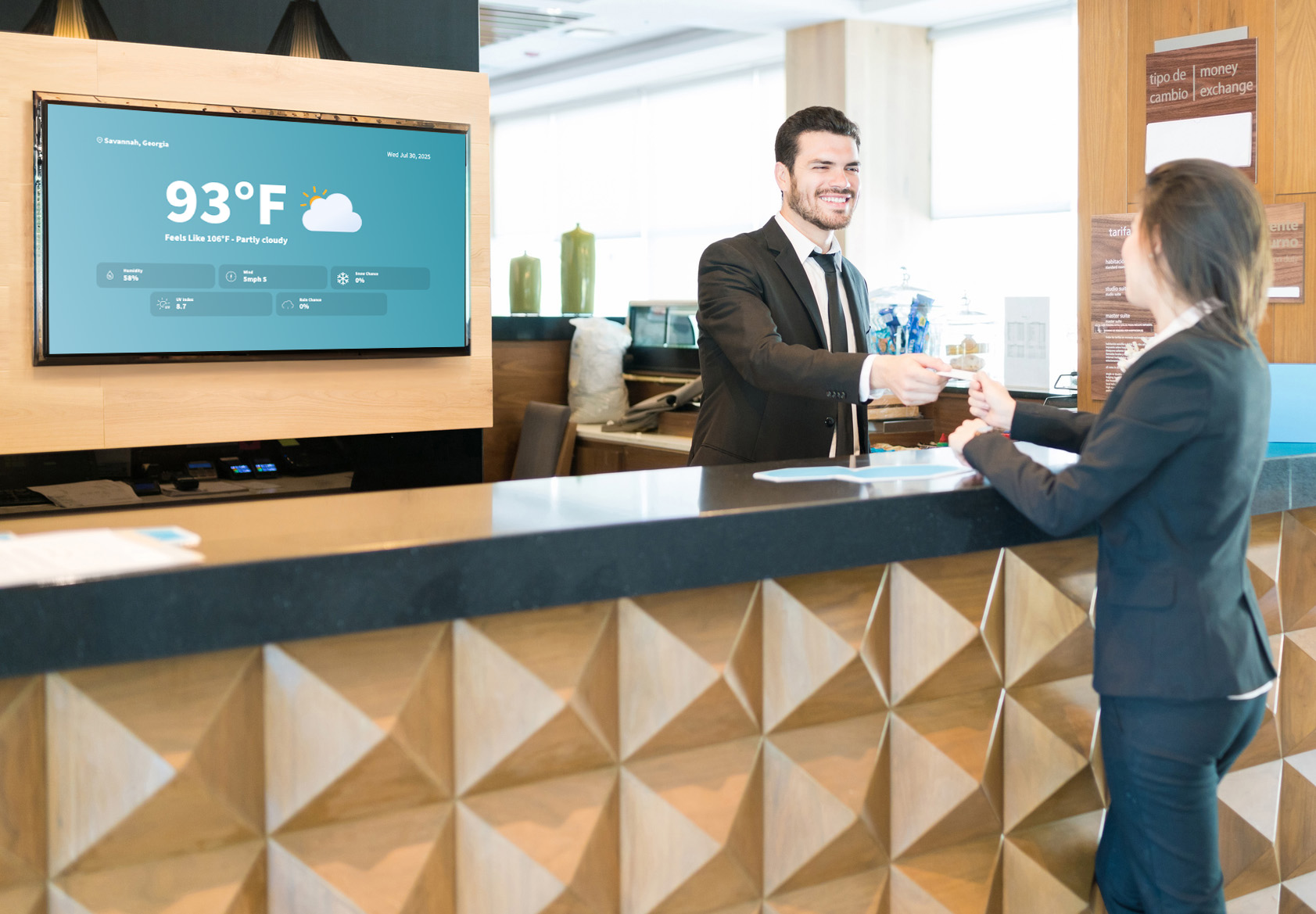By Theresa Bontempo
The hospitality industry, which includes important businesses like hotels, restaurants, and entertainment sites, consistently has one of the highest turnover rates, estimated at 70-80% annually. That is a very high number, and something that managers and executives in this industry would like to change for the better. Staffing issues are a concern at hospitality businesses everywhere, because not only are there no employees to get everyday tasks done, but the employees who are there have to pick up the slack, continually getting over-worked and burned out.
When there’s not enough people to assist customers, it can lead to a decline in customer service, making an impact on the business’ bottom line. After all, no one wants to go to a restaurant or stay at a hotel where they have had a bad experience. So what can be done about this problem?
If you’re a manager or executive keep reading, because we’re discussing:
- Why hospitality employees are leaving the industry
- How to fix high staff turnover
- How to keep employees satisfied and engaged with their work
6 Reasons Why Hospitality Employees Are Leaving the Industry
Understanding why hospitality workers feel the need to leave employment so soon is crucial for change!

There are many reasons driving the high turnover in the hospitality industry, from low wages to lack of career growth opportunities. Image courtesy of RotaCloud.
While the turnover rate at hospitality-focused places of employment has always been higher than other industries, since the pandemic, it appears to have worsened. Lots of hotels and food service businesses were forced to lay off or let go of staff due to closures and delays in openings. But while many other industries have slowly been rising back, the hospitality industry still seems to be suffering from staff shortages everywhere. What is keeping the hospitality industry in a rut and why does it seem like staff turnover is so common?
Low Wages
One of the many complaints of employees in this industry is the notoriously low wages. While everything around them, from rent, food, gas, and groceries does nothing but increase in price, hotel and food service wages do not rise to compensate. This can make it very difficult for managers to find people who are willing to work for lower wages, and stay on for any amount of time. Eventually the stress of not making enough money can force employees to leave their jobs.
Competitive compensation is necessary in every profession, including in the hospitality industry. Businesses should keep up to date with what a competitive salary is if they want to lower turnover rates that only cost the business more money.
Long Hours
Long hours in food service and in hotels is very common, as employers are trying to make due with the staff that they do have. This can lead to longer days/nights with not many breaks during their shift. Employees are likely to leave their job when their shifts keep getting extended. This interferes with an appropriate work/life balance when an employee feels like they are always at work, or on call. Having time away from work gives employees the chance to rest and recharge, so they can come back feeling renewed and with the right attitude.
Longer hours also mean less flexibility in the schedule, since there are fewer workers to complete all the necessary tasks. Not having some flexibility in the schedule can lead to conflicts with their responsibilities outside of work (such as child or elder care), and can result in an employee leaving.
Toxic Work Environment
No one wants to work in a toxic work environment where they feel threatened or unable to speak up when someone isn’t treated with respect. Unfortunately, many hospitality employees have experienced harassment at work, as much as 47% of workers in 2021. While harassment is illegal, it often goes unpunished because there often isn’t proof or when it does make it to management, nothing is done.
Bullying is another contributor to toxic work environments, and when employees feel like their coworkers or their boss don’t like them, they are more likely to leave and find another position that’s less stressful.
Large Workloads
Thanks to staff shortages, you’re going to not only have longer hours, but bigger workloads as well. Employees can only take on so much during their shift, and when they’re asked to compensate for less people, it can lead to burn out very quickly. Management should have realistic goals for employees like hotel housekeepers to complete during their shift, while at the same time not sacrificing cleanliness or quality.
Having to do too much can lead to a very stressful work environment, especially if employees are constantly being told it is considered their job to do the work of more than one person.
Poor Communication
Every industry benefits from proper communication, whether it’s from management to staff or between coworkers who need to cover each other’s shifts. However when there is a lack of clear communication between managers and employees, it can lead to confusion and issues that prevent the business from operating smoothly. Staff should be aware of exactly what is expected of them during their shift, and managers should clearly communicate any new information or changes to policies or duties and ensure that each worker understands.
When there is a lack of understanding, it can lead to disengagement with employees, who feel like management doesn’t keep them informed, or are always changing policies.
One of the easiest ways to open the lines of communication between managers and hospitality employees is with Shift, which offers digital signage options for internal communications. Use screens in employee gathering areas to deliver information to employees in real time!
Lack of Professional Development
No hospitality worker wants to stay at the exact same position for years and years. However, a lot of employees feel like there are no opportunities available for them to continue their professional development. Taking an entry level job in the hospitality industry may be a way for them to get their foot in the door, but a good employee would also benefit from learning new skills or seeing if management is for them. When an employer is committed to their growth, employees are more likely to stay.
4 Ways You Can Fix High Staff Turnover in Hospitality
Don’t worry, there are ways you can prevent high turnover and keep good employees in the hospitality industry!

Employee recognition efforts are great ways to call out staff members for a job well done. Image courtesy of Cvent.
There are a lot of issues facing the hospitality industry, and staff shortages due to these factors are a systemic problem—and not one that can be solved by one hotel or restaurant. While you may not be able to change everything wrong with the industry that leads to high turnover rates, there are things your business can do to help alleviate some of the problems you face on a daily basis.
Reward and Recognize Employees
This is one of the best ways to encourage staff to stay and remain engaged with their employer. It’s very easy to point out mistakes or shortcomings, but how often are employees called out for something they did that went above and beyond? Rewarding and recognizing employees can go a long way to helping them feel more appreciated and creating a more positive workplace.
Keep Communication Lines Open
It’s essential to ensure that communication lines are always open, and that staff is aware ahead of time of not only what is expected of them throughout their shift, but of any changes that are coming from management. Managers should strive to be open to helping employees with any questions or concerns they may have, and to ensure that they have all the information they need to do their job effectively. When employees feel like they can tell managers if there’s an issue, they’re more likely to feel like the workplace is a safe and positive place.
Adjust Wages and Benefits
Although sometimes this is out of the hands of direct managers/supervisors, it’s essential that staff positions are being paid a competitive wage. This is one of the best ways to attract talent that want to work, and keep them. Without a livable wage, hospitality workers often need to keep moving from job to job to make ends meet. In addition to wages, employee benefits are also an essential component to keep employees at their job. Having access to medical benefits and time off are necessities and will attract workers who want to stay.
Offer More Flexible Options
As much as possible, you want to work with your employees to offer some kind of flexibility in their schedules. This can sometimes be difficult with shift work, but enabling employees to adjust start/end times or to swap shift days with other employees because they have another important commitment (such as a doctor’s appointment) goes a long way to reducing a high turnover rate.
Allow Staff Opportunities for Career Growth
A big reason why many staff in the hospitality industry are burnt out and leave is due to them feeling stuck in their position. Many people like to progress within their job, take new positions, and prove their worth to a company and mission they’re passionate about. In the hospitality industry, it’s important to offer staff career growth opportunities to help fulfill them and help them grow not only professionally, but in a personal way too.
These career growth opportunities can range from specific trainings, certifications, and leadership programs that can help them apply for jobs or be promoted to manager positions, executive chefs, or even directors–plus different departments of the business if they want to get out of the hands-on part of the hospitality business and work behind-the-scenes in the offices.
Prevent the Burnout Before it Happens
Burn out the number one reason why many hospitality staff leave the field–and sometimes permanently. If you’re looking for a way to prevent the burnout before it happens, there are a number of things that you can do. While hiring extra help is a huge plus, sometimes it can be hard to find the right candidates. Instead, opt for reviewing the workloads of each staff member to make sure they don’t have too much and ensuring that your staff takes all of their breaks on their shift no matter how busy it gets–and for the busy seasons and holidays, consider hiring seasonal staff.
Implement an Employee Engagement System
Engaging staff is one of the best ways to keep hospitality workers from leaving the industry, but the methods on doing so can vary. If you’re looking for a technological advancement to add to any business, hotel, or other type of business in the hospitality industry, then adding digital signage and using an employee engagement system can help.
Employee engagement systems are a simple way to get to know your staff better, recognize their achievements, and give and receive feedback. Shift is a popular employee engagement system that aims to help managers build better bonds and connections with their employees. Shift is a content management system (CMS) that allows you to create your own diverse and dynamic content ranging from pictures, videos, or even upload documents on digital signage, which is more eye-catching than traditional bulletin or poster boards.
This digital platform is a centralized place to communicate information to employees, such as recognition, awards, important HR information, policy changes, shift information, training, and anything that you want your employees to know. Think of it as a digital upgrade from the bulletin board of the past. Using a digital signage tool is a great way to showcase employees for a job well done, or for a milestone reached. This can improve your employee retention and help them feel more satisfied with their job.
Here are some of the benefits of adding Shift and digital signage to further engage with your staff:
- Boost employee engagement through recognition and appreciation
- Celebrate staff birthdays, work anniversaries, and other achievements
- Show training videos
- Employee spotlights
- Interactive polls for staff to anonymously complete
- Expands internal communications
- Allows staff to retrain and re-skill in key trainings
- Helps leaders learn more about staff
- Encourages employees to do work harder
- Increases productivity
Increasing Engagement With Hospitality Staff to Avoid a High Turnover Rate and Keep Staff Passionate
If you want to hold on your staff and reduce the amount of turnover you experience, management has to make some changes. Keeping good employees around who have experience is one of the best ways to ensure your hotel or food/beverage business keeps customers coming back for more. Investing in the well-being of hospitality employees with digital signage for employee communication options is one of the best ways to reduce turnover and support your employees.
Consider looking into Shift and implementing digital signage to it to boost engagement, increase productivity, and retain hospitality staff long-term!














.webp)

.png)